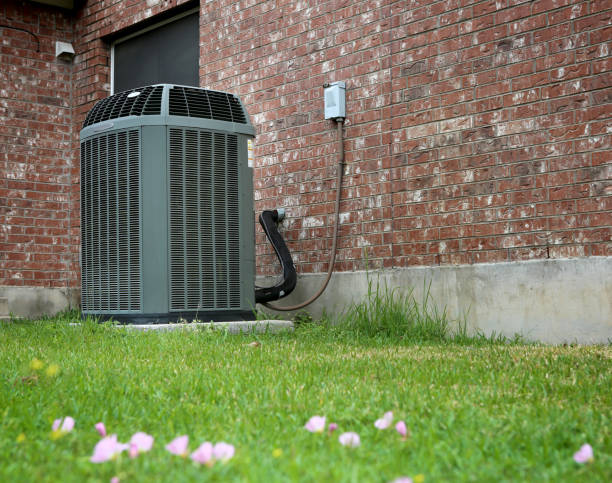Heat Pump Replacement Brandon, FL

Experiencing issues with your heat pump in Brandon, FL? This guide details when to consider a heat pump replacement, including factors like system age, frequent repairs, rising energy bills, and inconsistent performance. Learn about the significant benefits of upgrading to a new unit, such as superior energy efficiency, enhanced home comfort, and quiet operation. We outline our meticulous replacement process, from comprehensive consultation to precision installation and final testing, ensuring your new system delivers optimal performance and long-term value for your home.

Expert Heat Pump Replacement in Brandon, FL
A heat pump is a cornerstone of year-round comfort in your Brandon home, providing efficient cooling during the humid summers and reliable warmth on chilly winter nights. When this essential system begins to falter, it can disrupt your daily life and lead to escalating energy costs. Choosing to replace an aging or failing heat pump is a significant decision, but it is also an investment in your home’s efficiency, comfort, and long-term value. A professionally managed replacement ensures your new system is perfectly suited to the unique demands of the Florida climate, delivering reliable performance for years to come.
When to Consider Heat Pump Replacement
Deciding between another repair and a full system replacement can be challenging. While a single repair might seem more economical upfront, there comes a point where investing in a new unit is the more financially sound and practical choice. Understanding the key indicators can help you make an informed decision for your Brandon home.
The Age of Your SystemMost heat pumps have a typical lifespan of 10 to 15 years. In Florida, where the system works hard for most of the year to combat heat and humidity, this lifespan can sometimes be on the shorter end of the spectrum. If your heat pump is approaching or has surpassed the 10-year mark, it is operating on borrowed time. Newer models offer substantial improvements in efficiency and performance that older units simply cannot match.
Frequent and Costly RepairsIs your HVAC technician a frequent visitor? One or two minor repairs over several years is normal, but if your system requires service multiple times a year, the costs can quickly accumulate. A useful guideline to consider is the "5000 Rule": if the cost of a repair multiplied by the age of your unit in years exceeds $5,000, replacement is often the more sensible path. A system that constantly breaks down is not only a drain on your finances but also a source of ongoing stress and unreliability.
Rising Energy BillsYour utility bill is a direct reflection of your HVAC system's efficiency. As a heat pump ages, its components wear down, forcing it to run longer and work harder to maintain your desired temperature. If you have noticed a steady, unexplained increase in your monthly energy costs, your old heat pump is likely the culprit. A new, high-efficiency system can reverse this trend, leading to significant savings.
Inconsistent Performance and ComfortAre some rooms in your house too hot while others are too cold? Does your system struggle to keep up on the hottest Brandon days? These are signs of diminished capacity. A heat pump that can no longer provide consistent, even heating and cooling or properly manage indoor humidity is failing to perform its primary function.
Outdated RefrigerantOlder heat pumps may use R-22 refrigerant, which has been phased out due to its harmful environmental effects. The production and importation of R-22 have ceased, making it increasingly scarce and expensive. If your R-22 system develops a leak, the cost to recharge it can be prohibitive. Upgrading to a new system that uses modern, eco-friendly R-410A refrigerant is a forward-thinking and responsible choice.
The Benefits of Upgrading to a New Heat Pump
Installing a new heat pump is more than just a replacement; it's an upgrade that brings a host of modern benefits to your home. Advances in HVAC technology mean that today's systems offer superior performance in every category.
Superior Energy EfficiencyModern heat pumps are measured by their Seasonal Energy Efficiency Ratio (SEER2) for cooling and Heating Seasonal Performance Factor (HSPF2) for heating. The higher these ratings, the less energy the unit consumes. Upgrading from an older, low-SEER unit to a new high-efficiency model can dramatically reduce your heating and cooling costs, often by a significant percentage. This efficiency not only saves you money but also lessens the strain on the local power grid.
Enhanced Home ComfortA new heat pump provides a level of comfort that older systems cannot replicate. Advanced features like variable-speed compressors allow the system to make continuous, subtle adjustments to its output. This results in more precise temperature control, eliminating hot and cold spots. Furthermore, these systems excel at dehumidification—a critical feature in Brandon's climate—creating a more comfortable and healthier indoor environment.
Quiet OperationHVAC technology has made great strides in noise reduction. New heat pumps are engineered with sound-dampening materials and advanced fan blade designs, resulting in operation that is often whisper-quiet compared to the loud, disruptive cycling of older units.
Our Meticulous Heat Pump Replacement Process
A successful heat pump replacement hinges on a detailed and professional process. We ensure every step is handled with precision to guarantee your new system performs at its peak from day one.
1. Comprehensive In-Home Consultation: Our process begins with a thorough assessment of your home. We perform a detailed load calculation to determine the exact size and capacity of the heat pump your home requires. An oversized or undersized unit will operate inefficiently and fail to provide optimal comfort. We will discuss your comfort needs, budget, and efficiency goals to recommend the best system for you.
2. Safe Removal of the Old System: Our technicians will carefully and safely decommission your old heat pump. This includes the proper disconnection of electrical and refrigerant lines and the responsible removal and disposal of the old indoor and outdoor units, adhering to all environmental regulations.
3. Precision Installation of the New Unit: This is the most critical phase. We install the new outdoor condenser and indoor air handler, ensuring they are perfectly level and securely placed. We meticulously connect the refrigerant lines, ensuring a leak-proof seal, and handle all electrical wiring to meet strict safety codes. We also inspect your existing ductwork to identify any leaks or issues that could compromise the new system's performance.
4. System Commissioning and Testing: Once the installation is complete, we don't just turn the system on. We conduct a comprehensive series of checks to commission the unit. This includes verifying correct refrigerant levels, testing airflow, calibrating the thermostat, and running the system through full heating and cooling cycles to ensure every component is functioning flawlessly.
5. Homeowner Walkthrough: We conclude the process by walking you through the operation of your new heat pump and smart thermostat. We explain its features, answer any questions you have, and provide guidance on best practices for maintenance to ensure its longevity and efficiency.










